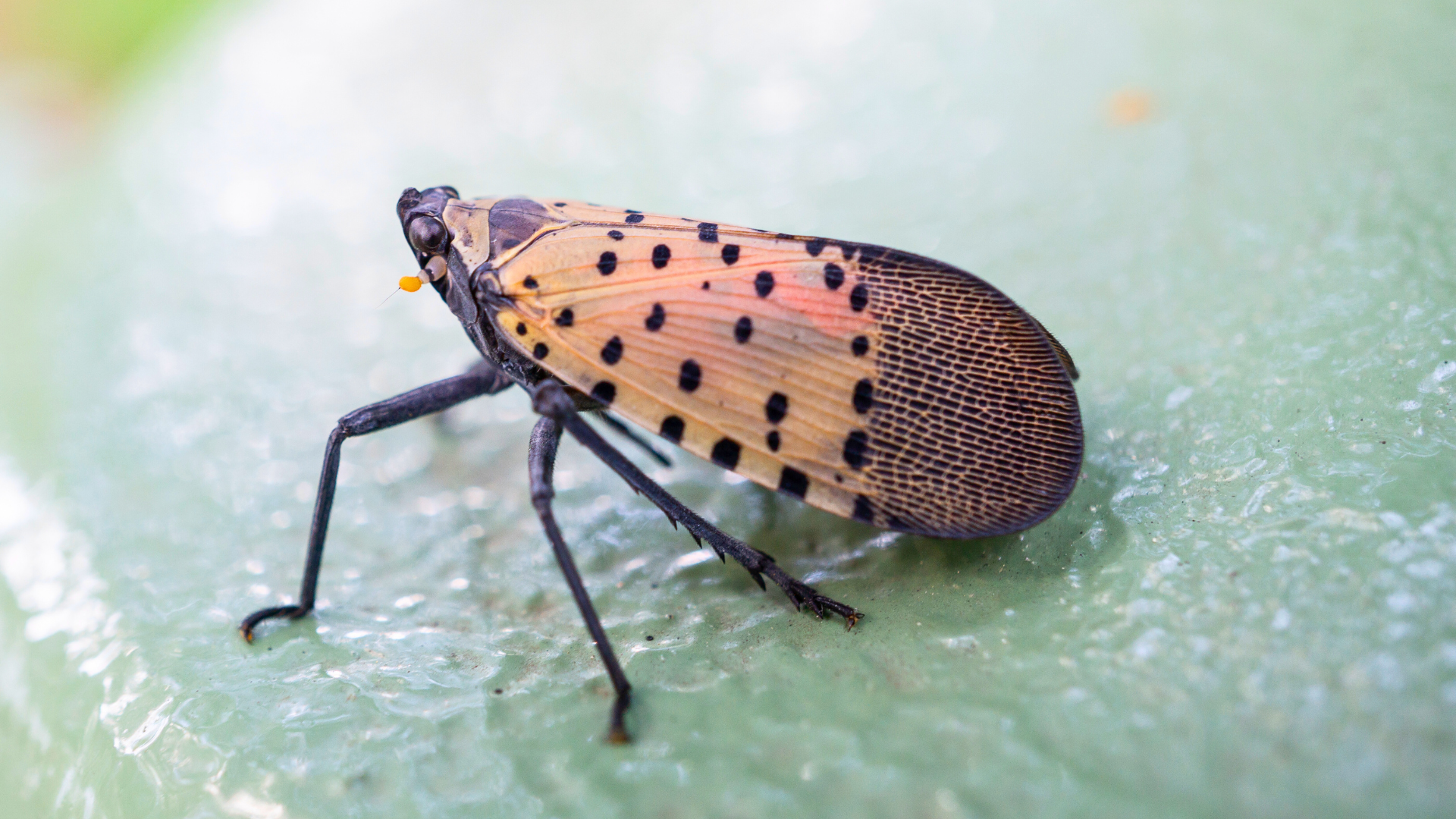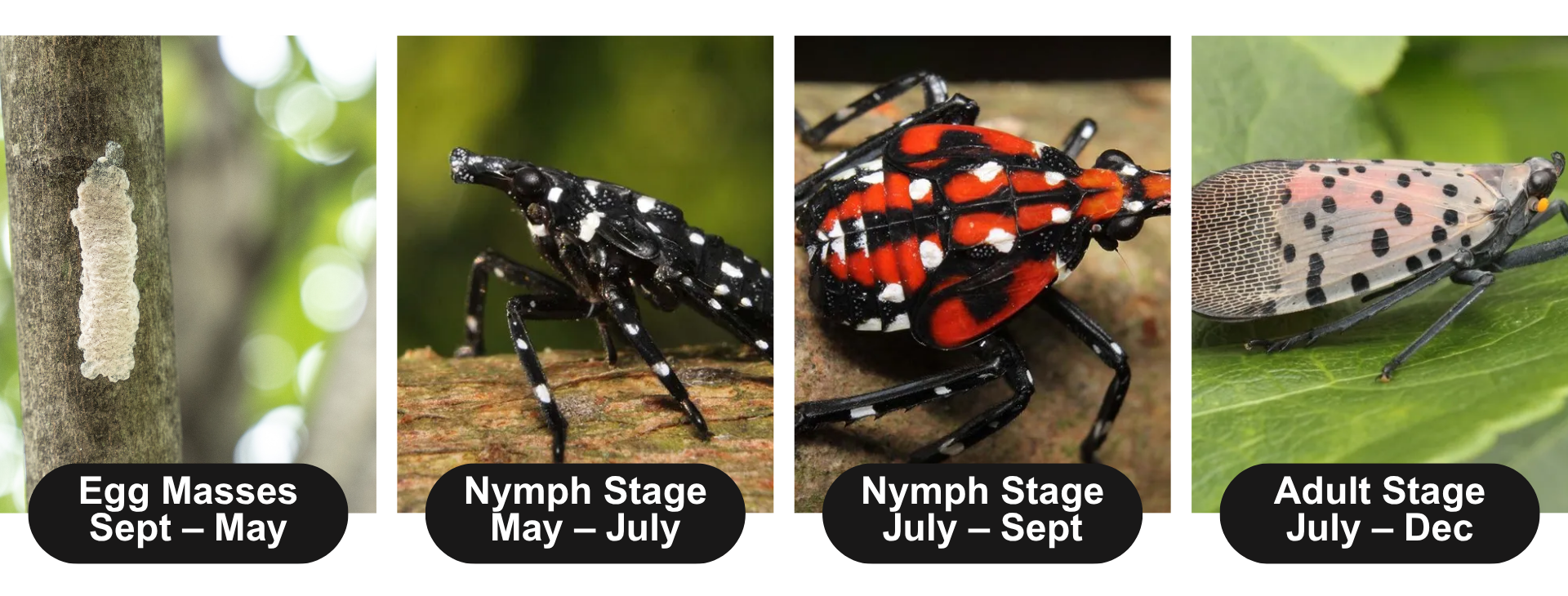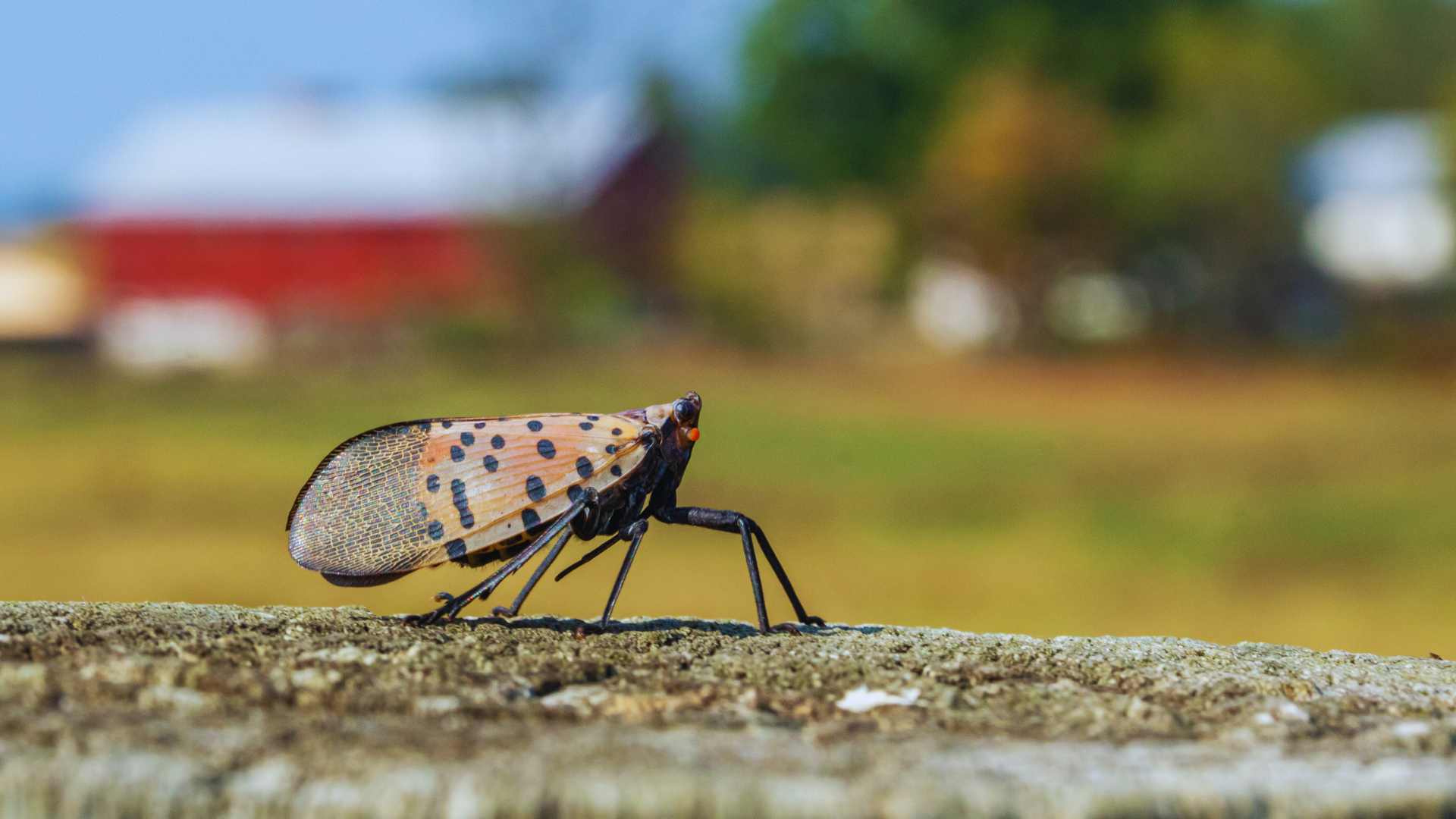Lantern Fly Control in New Jersey
Serving Monmouth, Ocean, Middlesex, and Union Counties
Spotted lantern flies are more than just a nuisance—they’re an invasive species threatening trees, gardens, and outdoor spaces across New Jersey. Known for swarming in late summer and fall, these pests damage plants by feeding on sap and leaving behind a sticky residue that promotes mold growth. Bee-Gone Termite & Pest Control helps homeowners in towns like Red Bank, Toms River, and Edison stop infestations early with targeted, effective treatment plans.
We provide expert spotted lantern fly control for properties throughout Central and Coastal New Jersey.

Why Lantern Flies Are a Growing Concern
Native to Asia, the spotted lanternfly has rapidly spread across New Jersey in recent years. These insects primarily target hardwood trees — especially ailanthus (tree of heaven), maple, black walnut, and fruit trees — but they also swarm decks, fences, and homes.
- Heavy feeding weakens trees and causes wilting
- They excrete a sticky "honeydew" that attracts mold, ants, and wasps
- Swarms can cover outdoor furniture, walls, and walkways
- Reproduction is fast — one female lays up to 50 eggs per mass
While lanternflies don't bite or sting, their sheer numbers and tree damage make them a serious nuisance that worsens year after year without intervention.
Spotted Lanternfly Life Cycle:
-
Egg Masses (Sept – May): Grayish, putty-like clusters found on trees, rocks, and outdoor furniture.
-
Nymph Stage – Black (May – July): Tiny black insects with white spots — fast and hard to catch.
-
Nymph Stage – Red (July – Sept): Bright red with black and white spots — increasingly damaging.
-
Adult Stage (July – Dec): Winged, spotted adults that swarm trees, decks, and structures.
Early detection and treatment at the nymph stage offers the best chance to prevent full-blown infestations.

Signs of Lanternfly Activity
- Swarms gathering on tree trunks, patios, and siding
- Sticky residue on cars, decks, or plant leaves
- Egg masses — grayish, putty-like blobs on trees, furniture, or stone
- Presence of sooty mold fungus or increased ant/wasp activity near trees.
Spotted lanternflies are more than just a seasonal annoyance. Without prompt intervention, they multiply rapidly and overwhelm your yard.





Our Lantern Fly Control Process
Inspection & Assessment – We evaluate your property for tree hosts, egg masses, swarm activity, and ideal treatment zones.
Targeted Treatment – Our technicians apply EPA-approved products to kill adult lanternflies and nymphs on contact, while also using systemic treatments (when appropriate) to protect high-value trees.
Egg Mass Removal – During the fall and winter, we locate and scrape egg masses to prevent spring hatching.
Ongoing Monitoring & Seasonal Programs – We offer proactive treatments during peak swarming season (late summer to early fall) to reduce infestation risk year to year.
Control & Prevention Tips
- Keep tree trunks clear of vines and ivy to reduce breeding areas.
- Inspect and scrape egg masses in late fall and winter.
- Avoid transporting firewood or outdoor gear that may harbor eggs.
- Encourage neighbors to monitor and treat as well — community effort is key.
Ready to Protect Your Property from Lantern Flies?
Don’t wait for a full-blown infestation — Bee-Gone Termite & Pest Control offers seasonal treatments that reduce swarms and protect trees across Monmouth, Ocean, and Union Counties.


